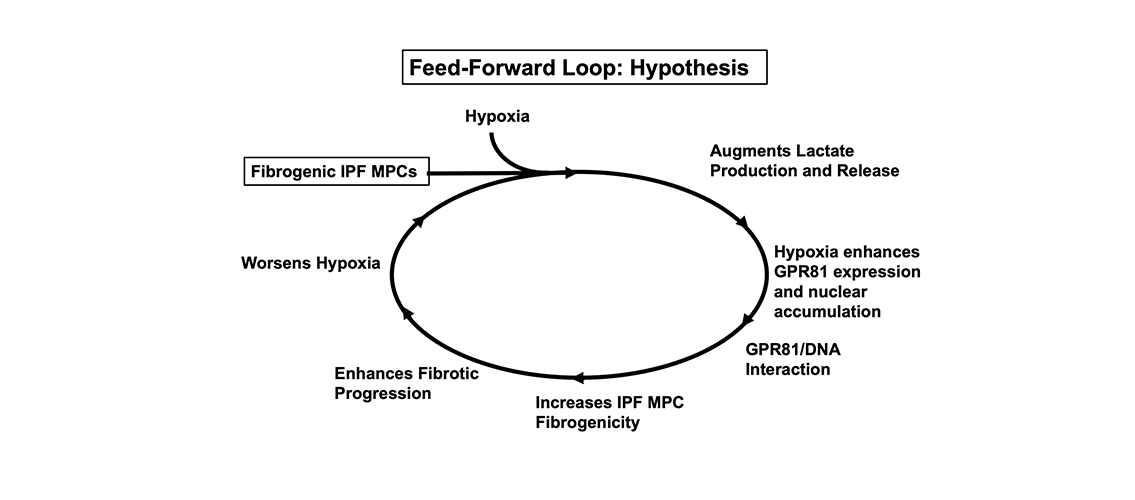
Idiopathic Pulmonary Fibrosis (IPF) is a deadly, progressive fibrotic lung disease. It is characterized by the replacement of normal lung tissue with fibrotic tissue that obliterates the gas exchange apparatus. This results in progressive hypoxia and death by asphyxiation. Current treatments slow but do not arrest fibrotic progression. To arrest fibrotic progression, its obligatory drivers need to be identified.
MSI PI Craig Henke (professor, Medicine) and his research group have previously discovered several interesting features of intrinsically fibrogenic mesenchymal progenitor cells (MPCs) in the human IPF lung and the role of hypoxia operating through the lactate/GPR81 axis in regulating IPF MPC fibrogenicity. They are working on a project called “ChIP-sequencing analysis of IPF mesenchymal progenitor cells to identify GPR81 nuclear binding interactions,” that involves ChIP-sequencing studies to identify GPR81-DNA interactions that may underlie the ability of exogenous lactate to enhance IPF MPC fibrogenicity. Data support the concept that hypoxia creates a feed-forward loop that augments IPF MPC fibrogenicity via the lactate/GPR81 axis.
This project recently received a Research Computing Seed Grant. RC Seed Grant funds are intended to promote, catalyze, accelerate and advance U of M-based informatics research in areas related to the MnDRIVE initiative, so that U of M faculty and staff are well prepared to compete for longer term external funding opportunities.
As of September 2023, the RC Seed Grant programs have been revised into the DSI Seed Grant programs. DSI Seed Grants include many of the same goals as the old program, with a new emphasis on data science. Complete information can be found on the DSI website.
posted on February 28, 2023